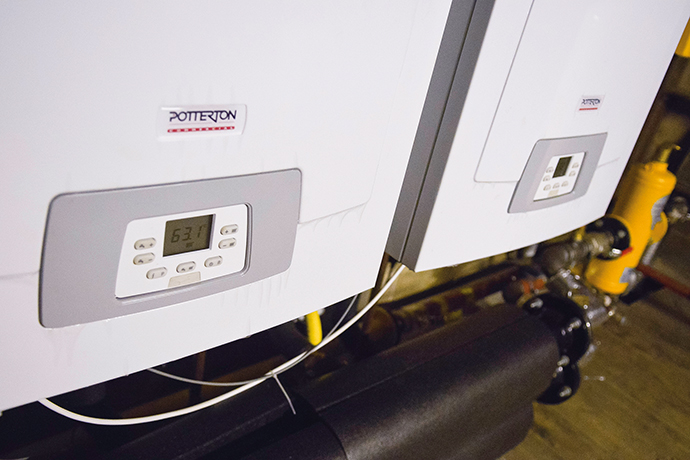
‘Over the last few years, the commercial heating industry has been undergoing a shift in focus from how heating systems are designed to perform, to how they actually perform and the efficiencies they achieve over their operating life. As a result, contractors are facing three key challenges.
First, ensuring that a heating system has been closely matched to the predicted demand of the building has never been more important. Second, savvy commercial clients expect to end up with a system that is flexible enough to respond swiftly, accurately and efficiently to changes in heating and hot water demand. And third, within all this, contractors are expected to work within build budgets by specifying a system that can be installed easily and efficiently.
Boiler cascades are rapidly emerging as an ideal way to deliver these performance benefits. They marry the best in modern heating technology with controls that ensure the boilers operate at maximum efficiency, respond rapidly to changes in usage patterns, and extend the operating life and reliability of the equipment.
Usually, contractors face the challenge of combining a wide range of system components from various suppliers to create a system that meets the needs of the end user. But, as boiler cascades are supplied by one manufacturer, contractors can be confident that the various components included can be integrated and will work seamlessly together as one product.
They are provided within a compact, modular framework that saves space and dramatically reduces installation time – in many cases by between one and two days – while also simplifying the installation and commissioning.
They are suitable for a wide range of commercial building applications and, by accommodating up to six boilers in series, can be very accurately sized to meet specific demands of the building occupants.
Individual boiler modulation adds further flexibility to this approach by ensuring that each boiler can also adjust its operating capacity in line with the overall strategy.
For instance, Potterton Sirius two wall hung boiler has a modulation of 9:1. For every additional boiler added to a system, the modulation range improves by a multiple of nine. Three boilers can attain a modulation range of 27:1, which delivers unparalleled efficiencies and low flue gas emissions.
When choosing a boiler cascade, look for adjustable mounting feet so that the kit can be fitted on uneven surfaces, robust insulation kits to cut heat losses, and quick and easy jointing to save time and effort on pipe fitting.
It’s worth remembering that a controls strategy will be fundamental to this approach, so commissioning must be planned and prioritised to ensure the boiler firing sequence and modulation is properly set up from the start.
Rather than taking a one-size-fits-all approach, a calculated assessment looking at building requirements and future heating demand is crucial. Along with efficient installation and minimised downtime, a well-engineered decision will ensure that systems can deliver the best performance possible in each unique setting. This will result in an installation that is in tune with the building’s needs, providing output that not only satisfies current demand, but can also cope with future growth.’
For more information in Northern Ireland please visit www.pottertoncommercial. co.uk or call 0345 070 1055. For Ireland, please visit www.baxipottertonmyson.ie or call 00353 (0) 1 459 0870.











